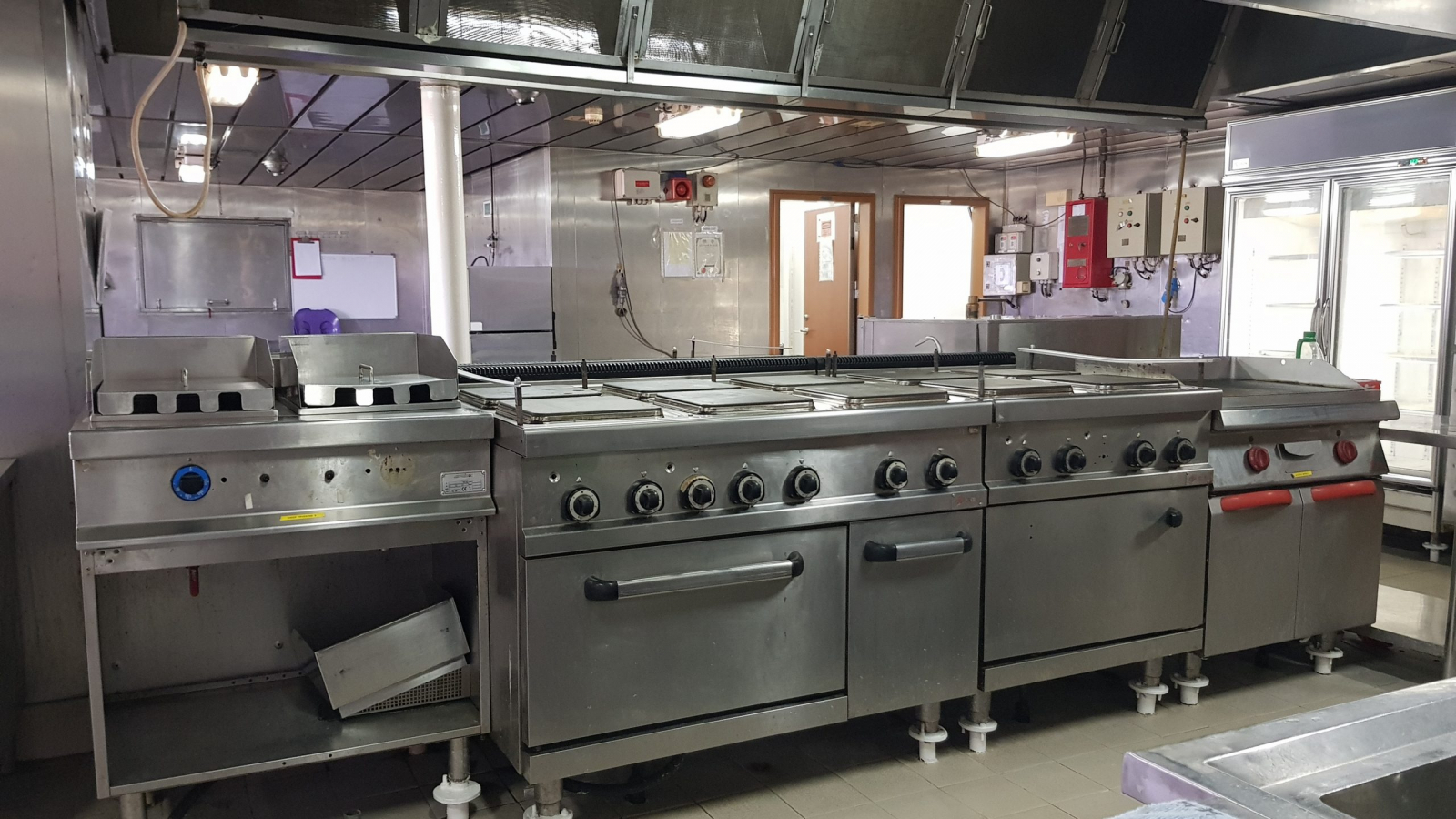Ever walked into a kitchen and been hit by a wall of stale grease and smoke? If you manage a commercial kitchen, chances are you’ve experienced it — or worse, heard complaints from staff or Environmental Health Officers. Poor indoor air quality doesn’t just make for an uncomfortable environment. It can impact staff health, violate compliance standards, and lead to expensive equipment failure.
For restaurants, cafés, schools, care homes, and hospitality venues, maintaining clean kitchen extraction systems is critical for air quality and operational safety. In this blog, we’ll explore why this matters, how extraction cleaning works, and how it can protect your business.
Why Air Quality in Commercial Kitchens Matters
Hidden Risks in the Air
Whether you’re running a gastropub in Clifton or a takeaway in Easton, your extraction system is the frontline defence against airborne grease, smoke, and odours. Without regular cleaning, ductwork and extractor fans accumulate layers of grease and carbon particles — leading to:
- Reduced airflow and oxygen levels in the kitchen
- A build-up of airborne pollutants
- Unpleasant odours that travel into customer-facing areas
- Increased fire risk
.
Health Impacts on Staff
Poor air quality doesn’t just smell bad — it can seriously affect staff wellbeing. Prolonged exposure to grease-laden air contributes to:
- Respiratory issues like asthma or bronchiti
- Headaches and fatigue from poor ventilation
- Eye, nose, and throat irritation
In high-use environments like schools or hospitals, this can also affect vulnerable individuals near the kitchen.
Here’s what we see time and time again when inspecting commercial kitchens across Bristol — plus what you can do to get ahead.
Compliance & Inspection Pressure
Local authorities in Bristol and beyond regularly assess ventilation systems as part of routine Environmental Health inspections. If your extraction system is dirty, you risk:
- Breaches of TR19 hygiene guidelines
- Low food hygiene ratings
- Insurance claim rejections in the event of a fire
Regular extraction system cleaning ensures your business meets health and safety requirements — and stays off the watchlist of enforcement officers.
What Happens During Extraction Cleaning? A Step-by-Step Look
1. Canopy & Filter Cleaning
The process begins with the visible parts of your system — hoods and grease filters. These catch large particles but also become the first places for blockages.
2. Ductwork Deep Clean
This is the backbone of your extraction system. Using specialist tools and degreasers, technicians access and clean duct interiors to remove deep-set grease and debris.
3. Extractor Fan Servicing
Fans are disassembled where necessary to clean blades and housings. Any imbalance caused by grease deposits can lead to reduced performance and motor strain.
4. TR19 Certification
For full compliance, you’ll receive a TR19 report with:
- Before-and-after images
- Detailed service notes
- Recommendations for future cleaning
This certification is often required by insurers and health authorities.
- Did You Know?
Over 70% of kitchen fires start in extraction systems due to grease build-up.
Need more detail on our kitchen extraction cleaning services? Discover what’s included and why it’s vital for TR19 compliance.
Common Misconceptions About Kitchen Ventilation & Air Quality
“If the air smells okay, it must be fine.”
Not necessarily. Grease and carbon can still be present even if odours are faint. Air monitoring and visual inspections aren’t always reliable without a professional clean.
“We clean our filters regularly, so that’s enough.”
Filters help — but they only trap a portion of contaminants. The real danger lies inside your ductwork and fan systems.
“We just had an inspection, so we’re good for another year.”
Usage matters more than time. High-volume kitchens may need cleaning every 3 months, especially if fryers and grills are used daily.
Tip: Keep a visible cleaning schedule and log to show inspectors that you’re proactive about maintenance.
How KESC Ltd Improves Kitchen Air Quality in Bristol
At KESC Ltd, we specialise in helping businesses across Bristol breathe easier — literally. Our TR19-compliant kitchen extraction cleaning is designed to improve air quality, reduce fire risk, and help you stay fully compliant with local regulations.
- Certified Technicians – Fully accredited by BESA, NAAD, CHAS & SafeContractor
- Transparent Pricing – Competitive rates with no charge for emergency callouts
- 24/7 Scheduling – Out-of-hours availability means no downtime for your kitchen
- Complete Documentation – Every clean comes with before-and-after photos and full compliance reporting
Get in Touch for Expert Extraction Cleaning in Bristol
Don’t leave your kitchen’s air quality to chance. Whether you’re running a busy restaurant in Clifton, managing a care home, or overseeing school facilities — clean air starts with a clean extraction system.
Speak to our Bristol-based team today to arrange your free site visit, get expert advice, or book your next clean.


